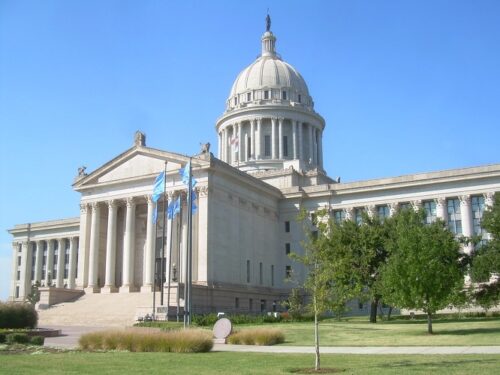
6.11.23 – HPPR News
With the deadline for the end of the special session coming June 30th, Oklahoma lawmakers are wrapping up their legislative work for 2023.
Dick Pryor: This is Capitol Insider – taking you inside politics, policy and government in Oklahoma. I’m Dick Pryor with Quorum Call publisher Shawn Ashley. Shawn, lawmakers were expected to return to the Capitol this Monday to continue the special session. The House is returning. The Senate is not. Why were they going to come back?
Shawn Ashley: Legislative leaders said in May when they called the special session that they would hold it open so they could come back to the Capitol to override any vetoes of special session bills issued by Governor Kevin Stitt. Governor Stitt vetoed two special session bills. Both these bills provide tribes the opportunity to extend their tobacco tax and motor vehicle tax compacts through 2024.
Dick Pryor: Why is the Senate not returning?
Shawn Ashley: Well, first of all, senators have not agreed on a date to potentially return. And secondly, they have not decided whether they want to override those vetoes. Both bills passed the House and the Senate with more than enough votes to override the vetoes.
Dick Pryor: The special session is continuing. So, what’s next?
Shawn Ashley: If both chambers don’t meet and adjourn Sine Die, the special session will adjourn Sine Die automatically on June 30th under the terms of a Senate concurrent resolution that was adopted back in May.
Dick Pryor: Oklahoma made national news when the statewide Virtual Charter School Board approved an application by St. Isidore of Seville Catholic Virtual School, which would make it the first publicly funded religious school in the nation. There will undoubtedly be constitutional legal challenges, and Oklahoma Attorney General Gentner Drummond is questioning the legality of the board’s process. Where is this matter heading now?
Shawn Ashley: Well, Robert Frost must have been unfamiliar with Oklahoma government and politics when he wrote “Two Roads Diverged in a Yellow Wood” because there are probably more than two directions things could go. First, there is the question raised by Attorney General Gentner Drummond about new board member Brian Bobek’s appointment June 2nd to the board and if his vote was valid. Drummond said Bobek’s appointment cannot take effect until November 1st, according to state law, and without Bobek’s vote the motion to approve the school would have failed on a 2 to 2 tie vote. Then a number of opponents of the idea that public funds will be going to a church-sponsored school have indicated they plan to challenge the board’s action in court. They contend it violates the state constitution and state statutes that prohibit public funds from being used to support sectarian entities. Supporters of the school say they are willing to pursue a resolution of the question all the way to the U.S. Supreme Court, and they point to a series of recent Supreme Court decisions that seem to lower the wall between church and state. In other words, there are a lot of paths we still have to follow.
Dick Pryor: That’s right, and it will probably take a long time before this issue is resolved. Next year, censures of state representatives Mauree Turner and Dean Davis will carry over into the legislative session. Both were censured in March and lost their committee memberships for more than half of the recently-completed session. What makes the continuation of their censures possible? And what would it take for their privileges to be reinstated?
Shawn Ashley: Well, we tend to think of the legislature operating in one year increments, but it really operates over two years. The 59th legislature takes place in 2023 and 2024. So, the chambers’ rules for this year will carry over to next year. And the bills that did not make it all the way through the process can be picked up again next year. The same is true, we are told, of the censures and the same requirement for the censures to be lifted continues to apply. Turner and Davis would have to apologize to the chamber and to the other parties in order to have their censures lifted.
Dick Pryor: And have they indicated whether they are willing to do that?
Shawn Ashley: Representative Turner has indicated they will not apologize for their actions during the legislative session. Representative Davis continues to claim his innocence to the charges against him and has not indicated whether he will or will not apologize.
Dick Pryor: All right. Thank you, Shawn.
Shawn Ashley: You’re very welcome.
Dick Pryor: And that’s Capitol Insider. For more information, go to quorumcall.online. You can find audio and transcripts at kgou.org and listen to Capitol Insider where you get your podcasts. Until next time, with Shawn Ashley, I’m Dick Pryor.
Announcer: From an Iraq War cover up to towns ravaged by opioids to the roots of our modern immigration crisis, Embedded explores what’s been sealed off and undisclosed. NPR’s original investigative podcast reveals why these stories and the people behind them matter.
